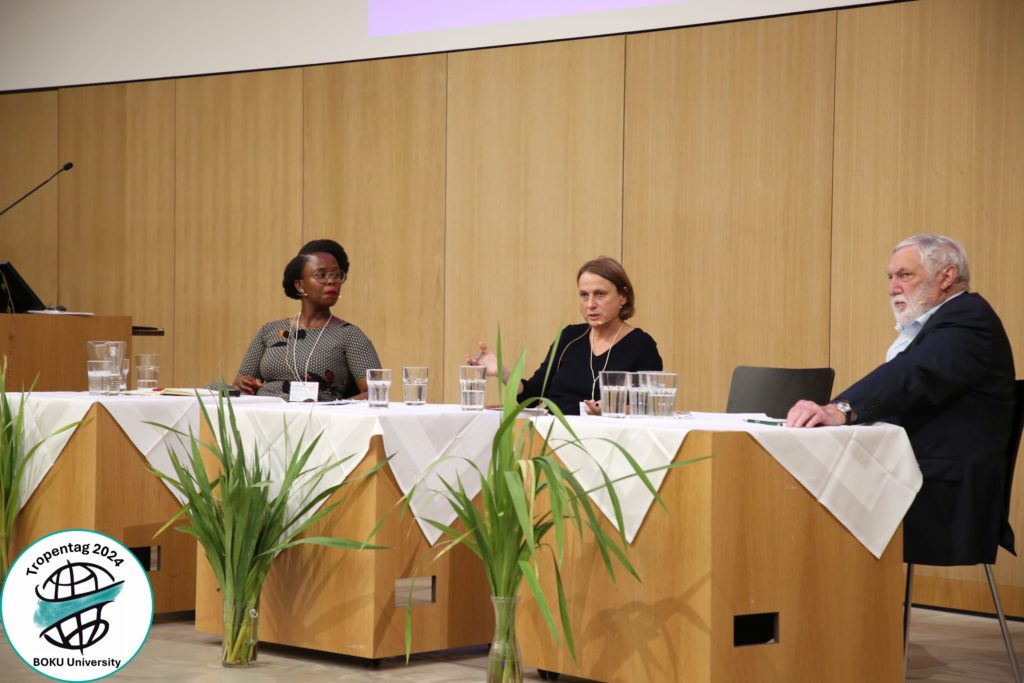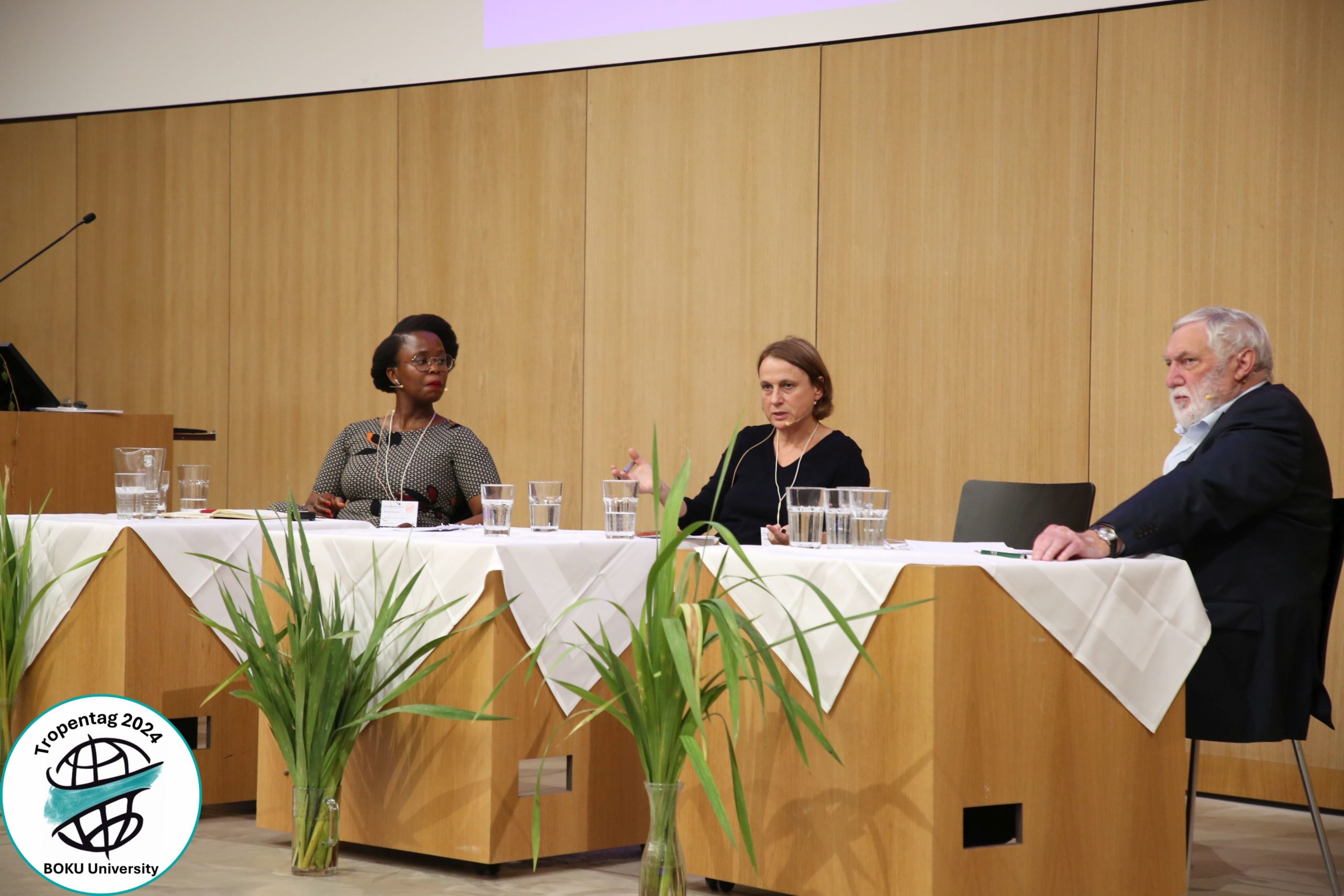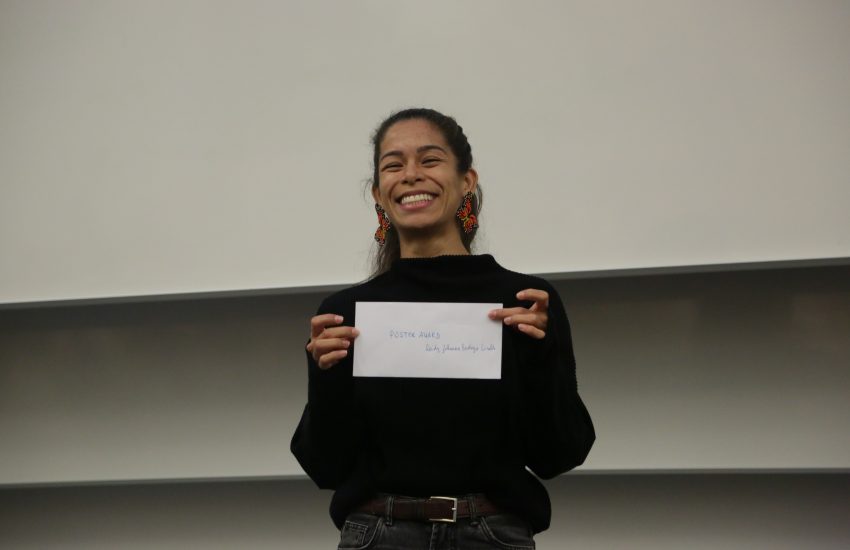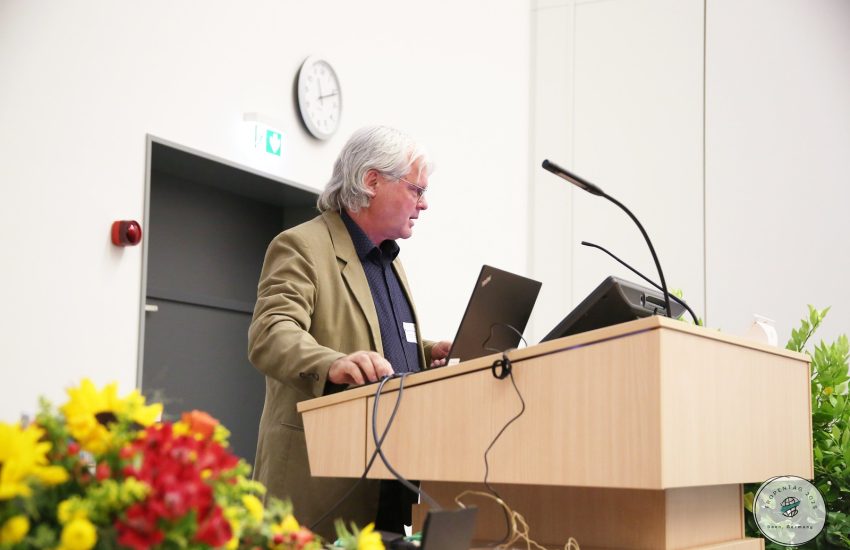The Keynote Speakers
Tropentag 2024 had the honour to welcome three keynote speakers with diverging backgrounds: Franz Fischler, Anja Gassner, and Lerato Thakholi. Although the speakers shared different stories, their speeches united them in a shared vision of making efforts for brighter future prospects.
The keynote speeches started off with Franz Fischler. He has had a long career in politics with a focus on agriculture and a significant influence on agricultural policies in Europe. During his keynote speech, Fischler put special emphasis on the role Europe should play in the tropical and subtropical zones of the world. He holds the position that the main four actors of change – politics, business, science, and civil society – need to build bridges, listen to each other, and work together if Europe is to regain its leading role as an actor of change in the global arena. This would be one major necessary step towards progress in the field of international cooperation and would push European countries to overcome the burden of their past.
The second keynote speaker, Anja Gassner spoke from her experience in science, consultancy, and policy. She provoked the audience by addressing directly and earnestly the alarming state of our planet. It took us only seven months in 2024 to exhaust the resources needed to sustain our global population for a whole year, not to mention the 6 out of 9 planetary boundaries that humanity has already crossed in 2023. Future generations will have to live with the consequences of these actions as the Earth cannot replenish herself fast enough to sustain life as we know it. Gassner highlighted that food, agriculture, and land use are the three main solution areas to safeguard our planet and keep it habitable for future generations. Being the Managing Director of the Center for International Forestry Research (CIFOR-ICRAF), she underscored the importance of forests as a major key in battling the current challenges we face. Forests are not only the lungs of the Earth but also her “hydrological heartbeat” or simply put: the heart. In other words, forests provide us with the necessary oxygen and water to survive. Gassner further stated that we need to focus on communities since they are ultimately the ones who carry out the critical changes on the ground. In order to successfully implement the proposed solutions, however, we need to work in partnerships. Not one person alone is able to have the colossal impact needed to counteract current trends. Only together we stand a chance of creating a brighter future.
Lerato Thakholi, lecturer at the Sociology of Development Change group at Wageningen University & Research, continued the keynote session by taking us on a ‘safari’ of a different kind through her confronting presentation. She has empirically studied the historical development of property rights in land and environmental resources in southern Africa and how they have evolved together with the shifts in labour regimes. Even though she generally agrees that biodiversity conservation is a worthy approach against the planetary crises, she emphasizes that we should not forget those who act on the ground: biodiversity conservation workers. Biodiversity is loaded with racism, differential values of life, and a gendered division of labour. Thakholi therefore calls for attention to the bad working conditions conservation workers are dealing with.

Author: Katharina Wahedi



